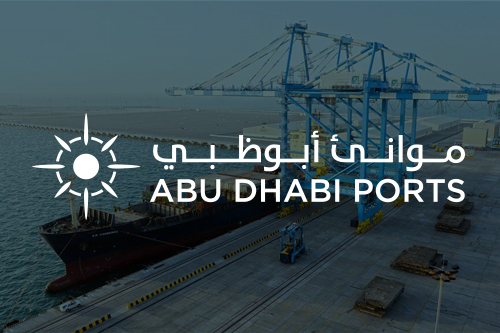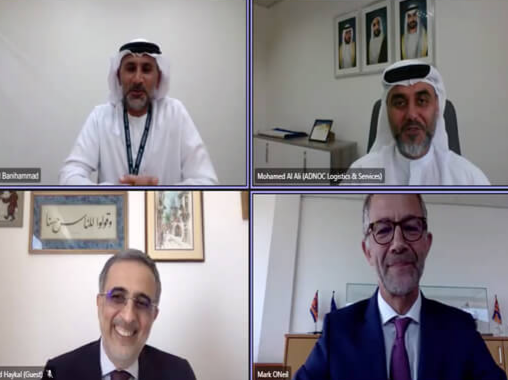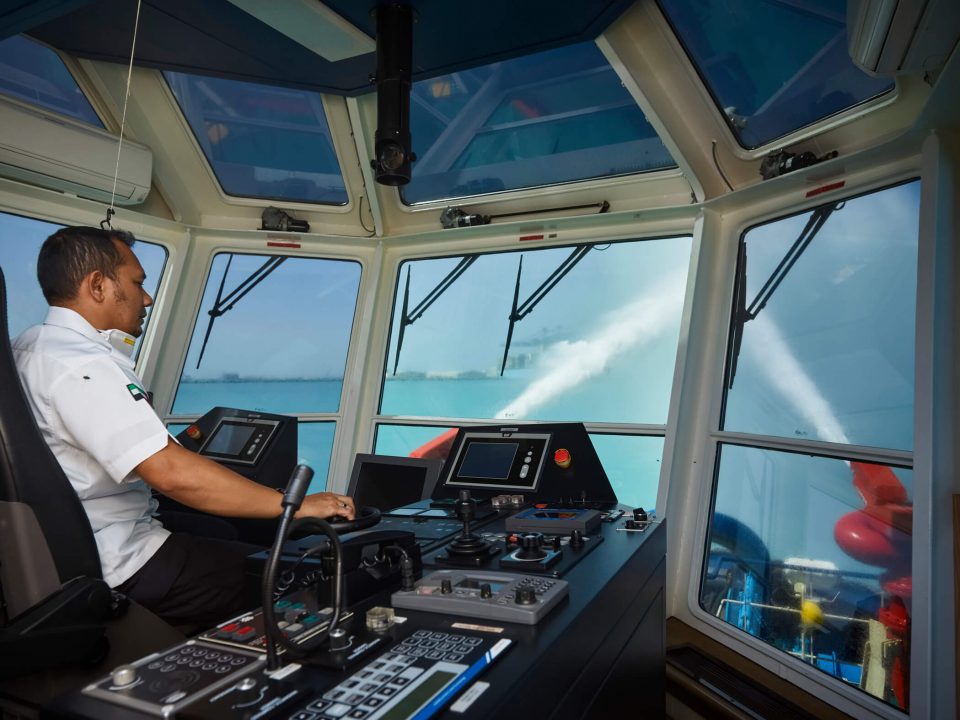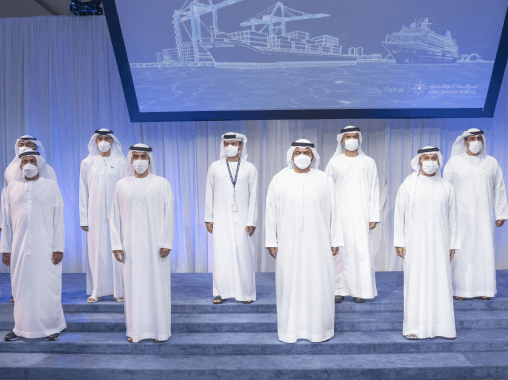Trucking Seminar
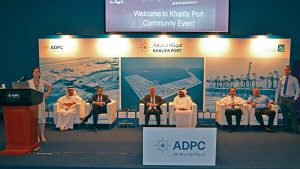 In preparation for the 1st September operational opening of the Khalifa Port Container Terminal, Abu Dhabi Ports Company (ADPC) and Abu Dhabi Terminals (ADT) held a half-day seminar that shared the latest updates and procedures directly impacting trucking companies and clearing agents which will use the Port.
In preparation for the 1st September operational opening of the Khalifa Port Container Terminal, Abu Dhabi Ports Company (ADPC) and Abu Dhabi Terminals (ADT) held a half-day seminar that shared the latest updates and procedures directly impacting trucking companies and clearing agents which will use the Port.Presided over by Capt. Mohamed Al Shamisi, Executive Vice President, Ports’ Unit, ADPC and Martijn Van de Linde, CEO, ADT, the seminar brought together representatives from ADPC, the master developer and regulator of Abu Dhabi’s ports; ADT, who manage and operate the Khalifa Port Container Terminal; Abu Dhabi Customs, the Abu Dhabi Ministry of Environment and Water; Abu Dhabi Food Control Authority (ADFCA); as well as many executives representing the transportation industry.
Khalifa Port Container Terminal will be the first semi-automated one in the MENA region, and the automated procedures and seamless interaction between all stakeholders provide the trucking companies and clearing agents with optimal opportunities to help Abu Dhabi businesses gain access to the world markets.
“Khalifa Port, including the Container Terminal, will not only handle the existing Abu Dhabi container business, but also serve Khalifa Industrial Zone Abu Dhabi (Kizad), and offer the industrial zone’s tenants unprecedented access to global markets,” and continued “This requires carefully planned procedures that are discussed with the stakeholders before implementation. This is what ours seminar was all about, and I am very pleased to see so many companies accepted our invitation to be part of the process.”
Martijn Van de Linde, CEO, Abu Dhabi Terminals (ADT) added:
“We really redefine the regional ports industry with the opening of the semi-automated Khalifa Port Container Terminal. Today we had the opportunity to once again engage with the trucking companies and clearing agents that are an essential part of the logistics chain, and we look forward to also working with other sectors of the market in the months to come. Together we will make a real difference for Abu Dhabi’s businesses.”
The Khalifa Port Container Terminal will have the capacity to handle 2.5 million TEU containers, with the potential to expand to 5 million TEUs. The port’s master plan calls for an annual capacity of 15 million TEUs by 2030.
Khalifa Port will also be developed to cater for general cargo and Ro/Ro. The initial capacity will be 12 million tons of cargo, including 4 million tons at the already operational EMAL berth. By 2030 the Port is planned to handle 35 million tons of general cargo every year.

















